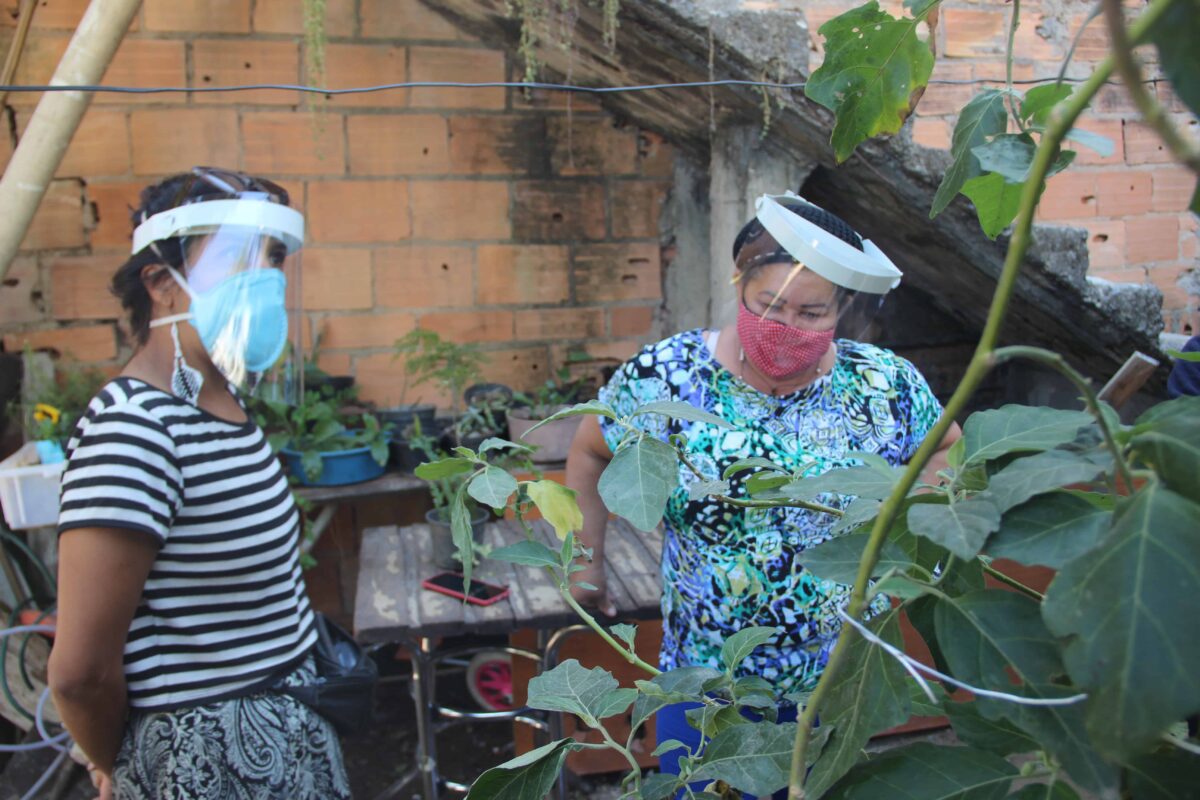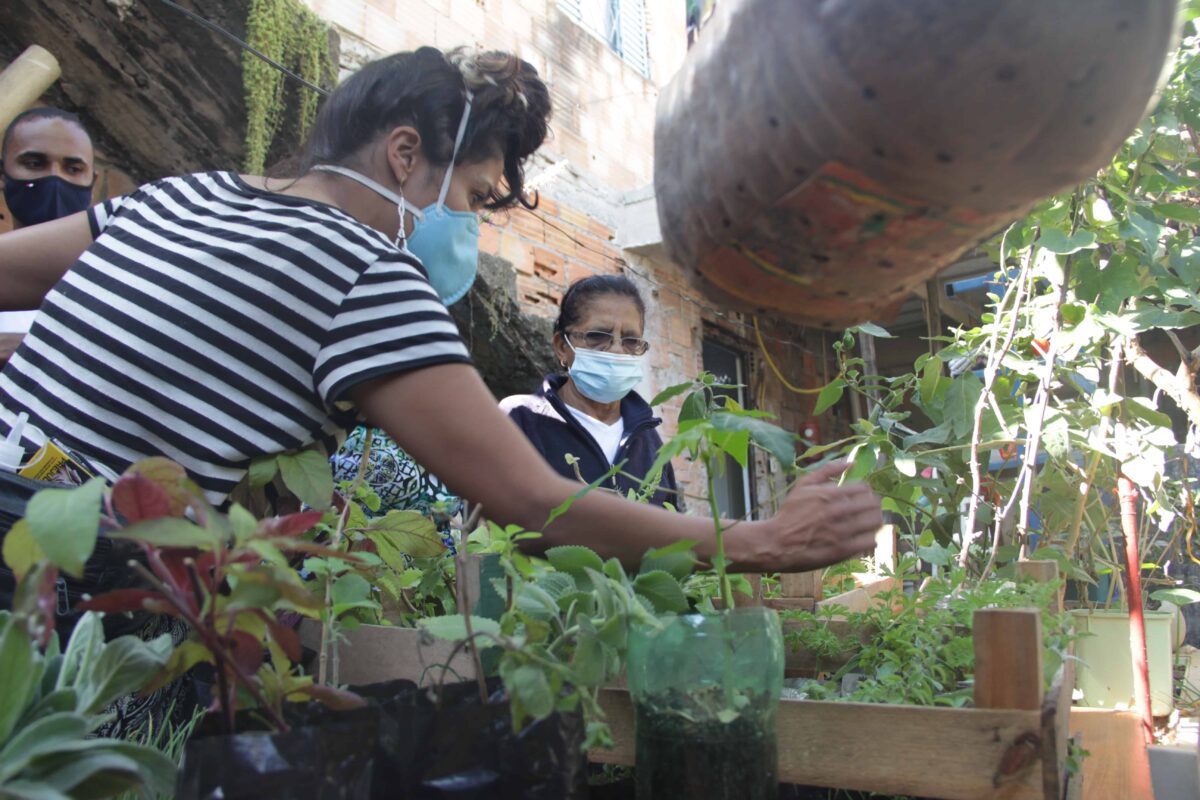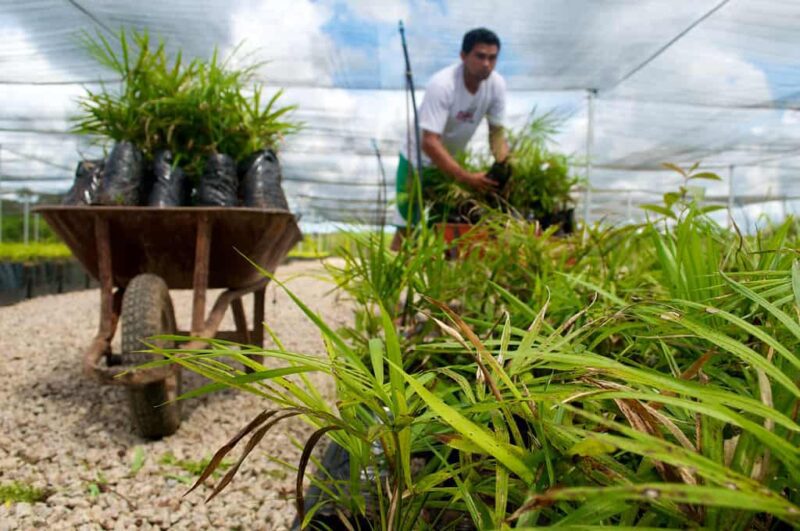Since its launch in March 2021, Internews’ Rapid Response Fund for Media and Communicators in Latin America and the Caribbean has supported information initiatives with a focus on Afro-descendant audiences in several countries in the region.
In the context of 2022 Black History month in the United States, we are pleased to share the work of some of our partners.


Women in Vila Nova organize under the Ora-Pro-Nóbis project to share information with the community about the integral use of food, urban planting, primary health and medicinal herbs.
Ora-pro-nóbis: Cultivating Healthy Food in the Periphery, Brazil
Among the devastating impacts of the COVID-19 pandemic in Brazil was the country’s return to the Hunger Map, caused by increasing food insecurity and worsening conditions of social vulnerability. Ora-pro-nóbis: Cultivating Healthy Food in the Periphery seeks to combat food insecurity in Vila Nova—a suburban area of the city of Belo Horizonte (Minais Gerais), where 82% of the population self-identifies as black or brown-skinned—through empowering women.
Through information sharing and the democratization of knowledge, methodologies, and tools, in the form of workshops, a WhatsApp group, an Instagram account, and a communication campaign, the all-female Ora-pro-nóbis team and community leaders of Vila Nova developed collaborative solutions to address the needs of access to food and health of mostly unemployed, brown and Black single mothers and grandmothers.
- Map of food banks, community kitchen, and vegetable gardens in Vila Nova
- Ora-pro-nóbis Instagram account
- Mulheres da Vila Nova YouTube channel
Wambra, Afrocomunicaciones and Kimsakosha, Ecuador
The powerful series “Cuando las mujeres se organizan” (When women work together),published by Wambra, Afrocomunicaciones, and Kimsakosha, compiles the stories of resilience of Afro-descendant women during the COVID-19 pandemic, told through first-person narratives to an audience of African descent in the northwestern provinces of Ecuador and in popular neighborhoods of the capital city, Quito. “La isla de las mujeres” (The Island of Women) talks about efforts to tackle food shortages during the pandemic in Isla Trinitaria, one of the most populated sectors of Guayaquil and with a majority Afro-descendant population.
“Las sanadoras: Rosita y María Eugenia” (The healers: Rosita and María Eugenia) explores the prevention and treatment of COVID-19 with medicinal plants, highlighting that many Afro-descendant women in Ecuador resorted to ancestral medicine as well as Western medicine. In “Nosotras valemos mucho, igual que todas” (We are worth a lot, just like everyone else), women of African descent who were released from prison tell how they supported their families, including taking part in illegal activities when formal work was not available.
National Coordinator of Black Women – Esmeraldas (CONAMUNECE), Ecuador
CONAMUNECE is a group of 13 grassroots organizations that work to promote the development and empowerment of black women in the province of Esmeraldas, in Ecuador. As communicators and information providers, the members of CONAMUNECE work to bring face-to-face information on education, health, Black culture, domestic violence to the families of women in rural areas, and marginalized urban neighborhoods across the province.
During the pandemic, CONAMUNECE visited Afro-descendant communities with no information and no prevention methods for COVID-19, they conducted workshops to inform about the disease in rural communities of Esmeraldas. These communities did not receive information or medical attention; both cases and deaths increased as a result.
CONAMUNECE workshops allowed communities like Recinto el Roto or Bocana de Lagarto in Esmearladas, Ecuador, to understand the pandemic, discuss their symptoms, and learn prevention methods. They also taught women in these communities to use WhatApp to report on their community’s COVID prevention efforts. CONAMUNECE also placed banners and hand sanitizer dispensers to aid communities in pandemic awareness and prevention.
Nós, Mulheres da Periferia, Brazil
Led by women who identify as Black and peripheral housewives and mothers, Nós, Mulheres da Periferia consistently produces content with a focus on Black and other women living on the periphery of society in Brazil. During the COVID-19 pandemic, Nós, Mulheres da Periferia highlighted the impacts of the health crisis on the lives of women, including the increasing inequalities exacerbated by the pandemic in the form of digital barriers, the multiplication of unpaid work and growing unemployment, and food insecurity against the backdrop of a political crisis in the country.
